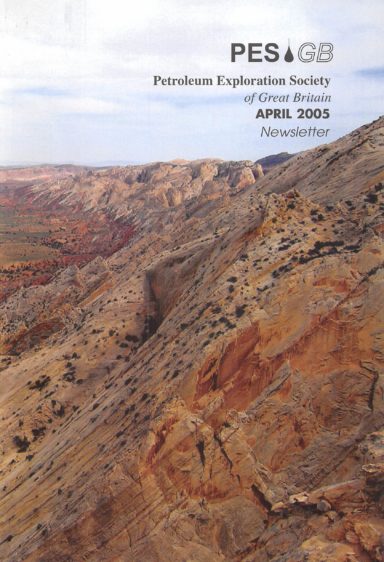PESGB April 2005
High oil prices and the impact on the UKCS
The first three months of the year have seen some of the coldest weather the southeast of England has experienced in recent years with snow in Central London. This has been true in Western Europe and North America also. As a response oil and gas prices remain high. The inevitable question comes up: “is this sustainable or are we in an upturn that is part of the cyclical process we are all too familiar with”. Every contractor/consultant I talk to is bursting with work and it is almost impossible to recruit geoscientists. This is a far cry from the situation about two years ago, where the Guinea, after the monthly London lecture was full of geoscientists wondering where the next contract would come from. So what has changed? It is too simple an analysis to say, “the oil price has gone up”. It is worth considering the underlying reasons for high oil prices. The main reasons appear to be;
• supply/demand is about in balance
• production in OECD countries is depleting rapidly
• there is a risk premium in oi l prices as a greater percent of supply is in politically insecure countries
• increased supply uncertainties due to Middle East anti-Americanism (43% of output)
The world needs to see a decrease in demand of 2.7 million barrels of oil per day to achieve 5% spare capacity. A result of this is that most pundits are predicting oil prices to remain “high” in the medium term. Where does the UKCS fit in this world? There have been several changes in UKCS activity recently that herald an evolution into a ‘Brave New World’ where the independent sector
moves in to replace the supermajors in niche areas, most notably exploration and small field development. Exploration activity hit low points in 1999 and 2002 when only 16 exploration wells were drilled. In 2004, 29 exploration wells were drilled and the expectation is that 2005 will see a further increase. The advent of Promote licences in the 21 st Round and subsequent Rounds has led to a doubling in the number of companies with licences on the UKCS from about 60 in the late nineties to over 120 after the 22nd Round. Many of these new companies are small independents but large independents such as Apache have entered. In fact independents are making their presence felt in other parts of the world as evidenced by the success of Cairn in Rajasthan, India and Hardman Resources in Mauritania. Despite increased cash flows the supermajors appear to be spending less on exploration and are very focussed in where they spend it. This all adds up to a window of opportunity as acreage is released back to the market either through relinquishment or through the fallow acreage initiative.
The changing business environment in which geoscientists in the UK find themselves has opened up many opportunities. Many of us who spent a large part of our career working for majors are now employed in the independent sector. A significant number have started their own companies and are striving to get prospects drilled. Reach Exploration, for example, has managed to farm out blocks they acquired in the 20th and 21st Rounds and have seen one well drilled and another currently drilling. A number of promoters will get their prospects funded this year. All in all exploration is alive and kicking and in the hands of those who want to explore!


